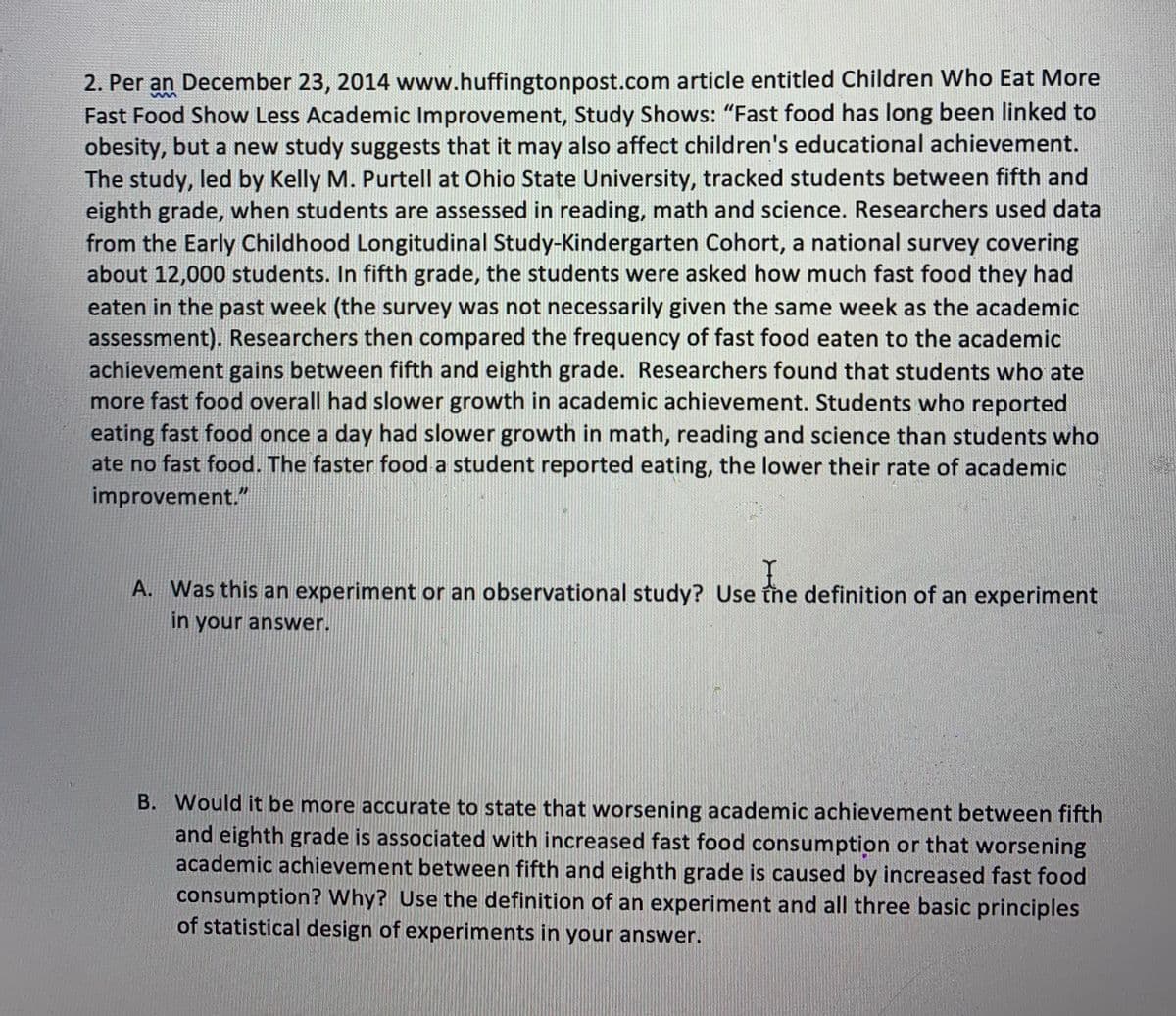2. Per an December 23, 2014 www.huffingtonpost.com article entitled Children Who Eat More Fast Food Show Less Academic Improvement, Study Shows: "Fast food has long been linked to obesity, but a new study suggests that it may also affect children's educational achievement. The study, led by Kelly M. Purtell at Ohio State University, tracked students between fifth and eighth grade, when students are assessed in reading, math and science. Researchers used data from the Early Childhood Longitudinal Study-Kindergarten Cohort, a national survey covering about 12,000 students. In fifth grade, the students were asked how much fast food they had eaten in the past week (the survey was not necessarily given the same week as the academic assessment). Researchers then compared the frequency of fast food eaten to the academic achievement gains between fifth and eighth grade. Researchers found that students who ate more fast food overall had slower growth in academic achievement. Students who reported eating fast food once a day had slower growth in math, reading and science than students who ate no fast food. The faster food a student reported eating, the lower their rate of academic improvement." A. Was this an experiment or an observational study? Use the definition of an experiment in your answer. B. Would it be more accurate to state that worsening academic achievement between fifth and eighth grade is associated with increased fast food consumption or that worsening academic achievement between fifth and eighth grade is caused by increased fast food consumption? Why? Use the definition of an experiment and all three basic principles of statistical design of experiments in your answer.
Percentage
A percentage is a number indicated as a fraction of 100. It is a dimensionless number often expressed using the symbol %.
Algebraic Expressions
In mathematics, an algebraic expression consists of constant(s), variable(s), and mathematical operators. It is made up of terms.
Numbers
Numbers are some measures used for counting. They can be compared one with another to know its position in the number line and determine which one is greater or lesser than the other.
Subtraction
Before we begin to understand the subtraction of algebraic expressions, we need to list out a few things that form the basis of algebra.
Addition
Before we begin to understand the addition of algebraic expressions, we need to list out a few things that form the basis of algebra.
can you please help me with my stats homework?

Trending now
This is a popular solution!
Step by step
Solved in 3 steps




